In 2020, perhaps more than any year in the past, viewers explored new forms of entertainment. Millions of people stuck at home were craving something new and immersive to distract ourselves from the stresses associated with the pandemic, and browsed content ranging from Korean dramas to documentaries to filmed versions of Broadway plays and musicals.
While anime already had a large following prior to 2020, its popularity exploded this past year, with viewership on Netflix up more than 100% in the U.S. Worldwide, more than 100 million households watched at least one anime title on the platform between October 2019 and September 2020.
Widely defined as animated works from Japan, anime is a medium rich in variety. There are fast-paced adventure series with cliffhangers at every episode’s end and slice-of-life shows that intensely tug at the heartstrings. Each episode is usually 20 minutes long—shorter than a typical television show—but tightly packed for maximum emotional impact. And while some associate anime with the shows we watched growing up—and left at an earlier phase in our lives—there are plenty of series with dark and serious themes targeted at adult viewers. (In fact, many of the selections on this list are likely not suitable for children.)
From psychological thrillers to coming-of-age dramas, throwback classics to 2020 standouts, we rounded up the best anime shows available on Netflix USA. For the purposes of this list, long-running series with more than 100 episodes (One Piece, Naruto, Hunter x Hunter and the like) are not included. All of these shows feature English subtitles, with most including English dubbing as well. Some shows have been subbed and dubbed in additional languages.
In alphabetical order, here are the 20 best anime series on Netflix available for streaming now.
Anohana: The Flower We Saw That Day (2011)
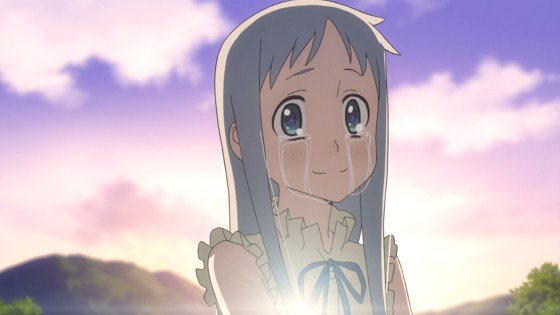
After Meiko “Menma” Honma died in an accident, a group of six childhood best friends gradually drifted apart. Years later, the ghost of Menma appears to Jinta Yadomi—who used to be the outgoing leader of the group but, since Menma’s death, has isolated himself and barely attends school. Menma asks Jinta to help fulfill her wish—the only way for her to move onto the afterlife. This request becomes the catalyst for Jinta and his friends to reconnect and, perhaps for the first time, process the pain that Menma’s too-early departure left on their lives. Anohana: The Flower We Saw That Day’s genius lies in creating compelling backstories for each of the main characters and artfully weaving their past and present together. The series also illustrates the healing and freedom that can come from deeply examining old scars.
Attack on Titan (2013-present)
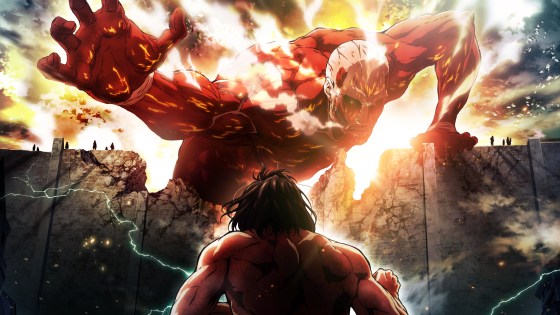
For a hundred years, humanity lived peacefully inside a 50-meter wall (around 165 feet) that protected against humanoid, man-eating giants known as “titans.” That peace is entirely destroyed when an abnormally large titan suddenly appears and breaches the wall, opening the way for the monstrous creatures to flood into civilization. After witnessing his mother’s death, Eren Yeager joins the Scout Regiment—the military branch tasked with battling the titans. Each arc in Attack on Titan moves at full throttle, with hardly a moment to catch your breath. It’s a story of holding onto the will not just to survive, but to live freely. The series also introduces Captain Levi Ackerman, the calm and collected ace of the Scout Regiment who is easily one of the most stan-worthy figures in anime.
Beastars (2019-present)
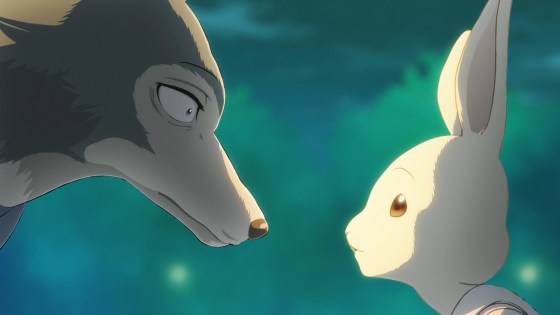
Anthropomorphic animals live in a world where peace and harmony exist on the surface but the tension between carnivores and herbivores boils underneath. Here, every character is labeled with the stereotypes associated with their species—even if they do not prove to be entirely true. Legoshi, the main character, has a quiet personality, but as a towering gray wolf is perceived with fear and even suspected as the predator who murdered an alpaca student in the drama club. When Legoshi meets dwarf rabbit Haru and begins to fall for her, suppressing his carnivorous instincts becomes the hardest it’s ever been. At its core, Beastars is a tender portrait of seeking to define one’s identity on one’s own terms.
Code Geass: Lelouch of the Rebellion (2006-2007)
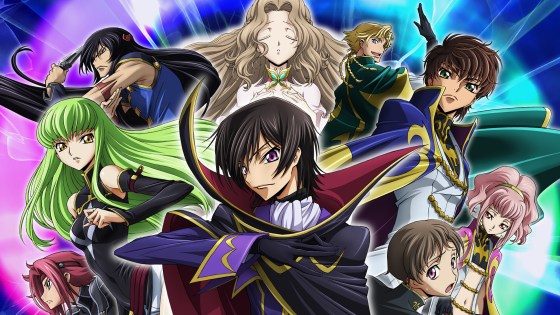
In this universe, Japan has been conquered by the Holy Empire of Britannia and is now a totalitarian state known as “Area 11.” The rebel forces against Britannia remain active, and one day Lelouch Lamperouge is unexpectedly swept into a terrorist attack. He is saved by a girl who grants him an enigmatic power called “Geass” that allows him to control others. With this new ability, Lelouch—who is an exiled Brittanian prince—begins to search for those responsible for his mother’s death and battles the government that has long oppressed Area 11. A nail-biter from its first episode, Code Geass: Lelouch of the Rebellion quickly starts to blur the lines between right and wrong as Lelouch uses his ability to seize obedience from anyone and everyone. The show grippingly raises the question: Is there a righteous way to effect change?
Death Note (2006-2007)
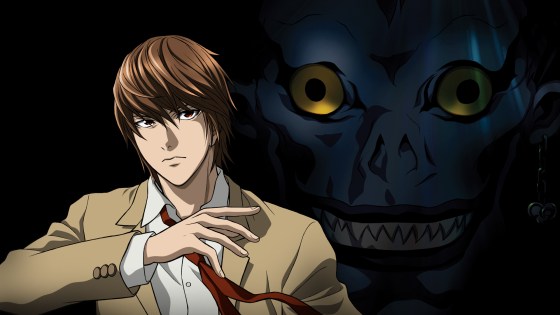
Light Yagami wants to be a god. After stumbling upon “Death Note”—a notebook that an actual god of death dropped into the human world—the high school student learns that anyone whose name is written in its pages dies. Right away, he begins to scribble the names of criminals in order to create a utopia without evil. It doesn’t take long before international law enforcement organizations start to hunt down whomever is behind the mysterious string of deaths. They partner with a renowned but anonymous detective who goes by “L,” and the story unfolds as Light and L attempt to outwit each other at every turn. Right away, the themes of Death Note are clear: What is justice, and how different are Light’s actions from those of the felons he kills? But beyond the social commentary, the series keeps viewers hooked through the clever schemes Light and L devise to expose the other’s identity while protecting his own.
The Disastrous Life of Saiki K. (2016-2019)
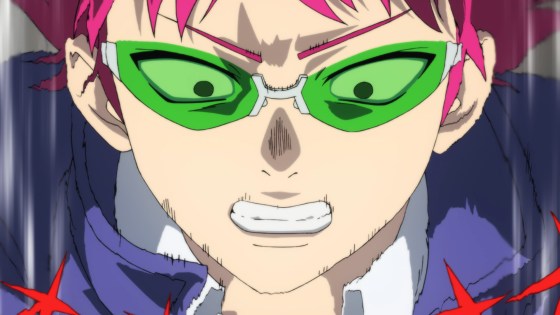
Kusou Saiki just wants to live a quiet, ordinary life without standing out. That’s quite the challenge when he was born with a wide array of supernatural powers, from mind reading to telepathy to X-ray vision to psychokinesis. Saiki does everything he can to keep his abilities hidden and direct attention away from himself, which often requires excessive mental gymnastics in order to appear average. The Disastrous Life of Saiki K. is refreshing and lighthearted, with Saiki’s deadpan internal monologue about the woes of having psychic abilities being the highlight of the show.
Dorohedoro (2020)
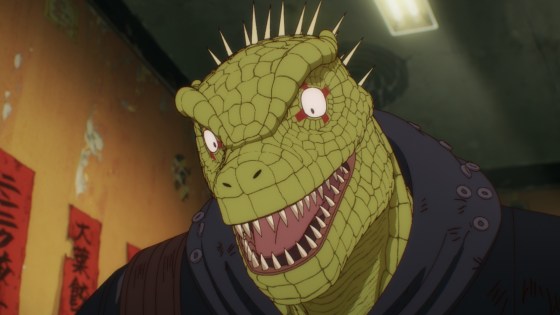
Everything about Dorohedoro is bizarre. After a sorcerer cast a spell on Caiman, he wakes up with his human face replaced by a lizard head and his memories gone. It isn’t anything out of the ordinary in many ways, considering he lives in the desolate and doomed “Hole” where magic users regularly practice curses on the non-magic, leaving them mutated or dead. In order to undo the spell, Caiman embarks on a journey to find and kill the sorcerer who cursed him. Violent and gory but packed with humor, Dorohedoro is a revenge tale meets black comedy in the best way. Its greatest charm is creating an ensemble of deadly but quirky villains who are just as endearing as—if not more than—Caiman and his equally odd crew.
Erased (2016)
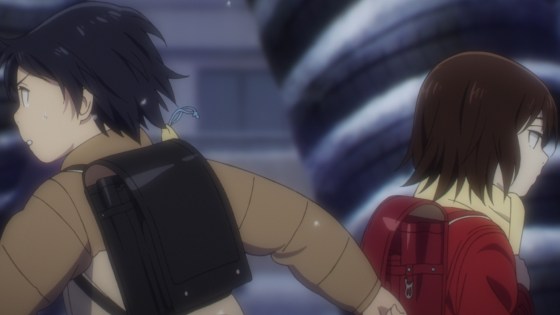
Satoru Fujinuma has never quite understood why he possesses the “Revival” ability, which sends him back in time a few seconds before disaster is about to strike. His confusion—and distress—only grows when, after finding his mother dead in his apartment, he is transported 18 years into the past. It’s 1988, and Satoru is back in elementary school. He soon realizes that a kidnapping case from that year that led to the death of his classmate may be connected to his mother’s killing—and attempts to prevent the two events. The stakes are high in both timelines, which only adds to the suspense of this murder mystery. But more than the whodunnit and time travel elements, Erased draws the viewer in with its depiction of a character who is initially closed off in life but slowly finds purpose through friendship and family.
Food Wars!: Shokugeki no Soma (2015-2020)

It doesn’t take long to realize that Food Wars!: Shokugeki no Soma is strangely sexual. After eating any dish, the characters have sudden erotic responses that often include bursting free from their clothes for no reason. But don’t let the foodgasms deter you from this delightful coming-of-age story, which features some of the most stunning cooking animation and mouth-watering food imagery in anime. Soma Yukihira is a talented teenage cook who long dreamed of running his father’s diner one day, but is suddenly sent to a cutthroat culinary academy where students regularly face expulsion for mediocracy. Unfazed, Soma sets out to become the top of the school. Most characters have a unique cooking identity—whether it’s a specialty in a cultural cuisine or a distinct approach to food (think molecular gastronomy or medicinal cooking)—adding immense range to a thoroughly enjoyable show.
Fullmetal Alchemist: Brotherhood (2009-2010)
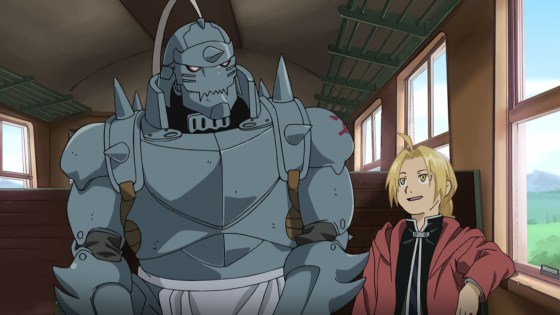
Ask anyone well-versed in anime for a recommendation, and Fullmetal Alchemist: Brotherhood will likely be one of their first suggestions. Lucky for us, all 64 episodes of this adventure classic are on Netflix. The story follows brothers Edward and Alphonse Elric, who trained in alchemy starting from a young age with the goal of bringing their mother back to life. There’s just one problem: “human transmutation” is taboo in alchemy and comes with a high cost. When the Elrics failed to revive their mother, they also lost parts of their bodies—with Alphonse’s entirely disappearing and Edward saving his younger brother’s life only by attaching Alphonse’s soul to a suit of armor. Together, the brothers set out on a journey to restore themselves to their original human forms. In addition to its suspenseful plot and elaborate world-building, Fullmetal Alchemist: Brotherhood excels in creating a large cast of characters who each play a significant role in their emotional quest.
Great Pretender (2020)

Japanese con artist Makoto Edamura was quite confident in his swindling skills—that is, until he met Laurent Thierry. After being duped by the French swindler, Edamura is determined to prove his reputation as “Japan’s top scammer” and joins Laurent in his heists. The first target: a Hollywood director who is actually a mafia boss controlling the West Coast’s drug industry. With a striking attention to detail while illustrating the cities Edamura traverses—from Los Angeles to Singapore to London—Great Pretender boasts stunning aesthetics along with its twisty plot. By juxtaposing the deeds of the scammers and the scammed, the series also prompts the viewer to consider if either party is on a higher moral ground.
Haikyu!! (2014-2020)
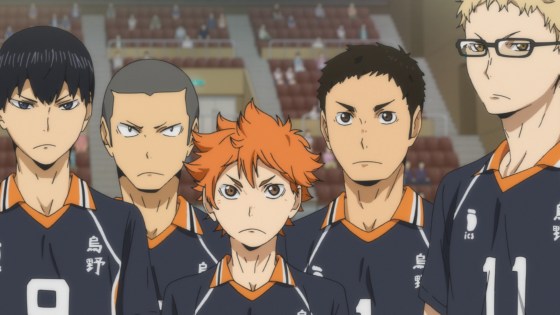
Ever since he faced a crushing defeat in a middle school volleyball game at the hands of “King of the Court” Tobio Kageyama, Shoyo Hinata has trained tirelessly with the goal of one day beating his nemesis. The last thing he expected when he entered the gym on his first day of high school was to find Kageyama, who enrolled at the same institution and is now his teammate. Together, the unlikely pair set out to redeem Karasuno High School from its “fallen champs” status, and rise to become the best high school team in Japan. Haikyu!! is commonly regarded as one of the best sports anime and coming-of-age stories for good reason: the action on the court instantly grabs the attention. But what immerses the viewer are the bonds that form with Hinata and Kageyama at the center, as each of the lead characters gradually lays down his pride and ego to become a better teammate and, more importantly, friend.
March Comes in Like a Lion (2016-2018)
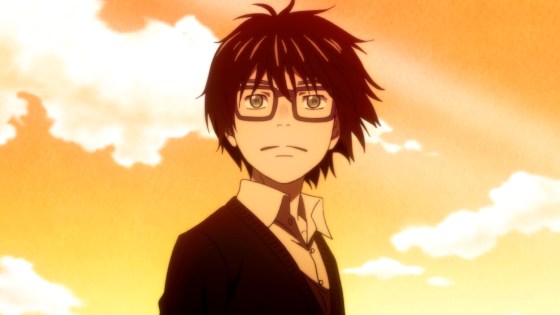
Long silences fill the opening episode of March Comes in Like a Lion, aptly reflecting the emptiness inside of Rei Kiriyama. Rei became a professional player of the game shogi, known as Japanese chess, in middle school. Now 17, he lives alone and has no friends at school. When Rei crosses paths with the three Kawamoto sisters and their grandfather, they welcome him into their home and become the family he has always longed for. The series is at its best when depicting the warmth in the most ordinary human interactions, as Rei learns the hospitality and love behind these three words: “come over anytime.” Its art and music also stand out for being mediums that convey Rei’s gradual transition out of his shell.
Neon Genesis Evangelion (1995-1996)
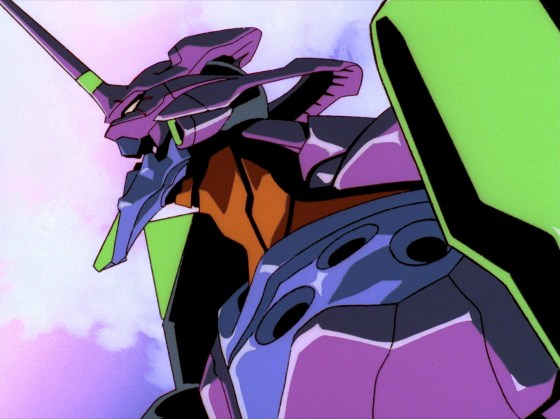
Released earlier than any other show on this list, Neon Genesis Evangelion has withstood the test of time. It’s 2015 (what was then the near future) and humanity faces extinction as monstrous creatures called “Angels” wreak havoc on civilization. The only weapon that stands a chance are giant robots named “Evangelions,” which are synced to a human pilot’s nervous system in order to be activated. At just 14 years old, Shinji Ikari is suddenly summoned by his estranged father to be the pilot of an Evangelion and has the weight of protecting mankind from total annihilation on his shoulders. Neon Genesis Evangelion addresses psychological trauma and emotional pain, as characters of all ages respond to past tragedies and a potentially bleak future. The series also examines the lasting impact of war on those who are forced to be on the front lines.
One Punch Man (2015-2019)
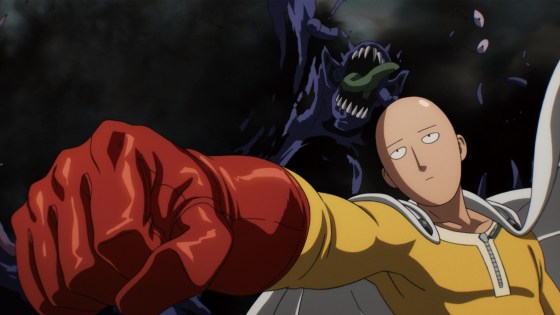
Saitama is bored. He has trained so vigorously to become a hero that he is now overwhelmingly powerful; with a single punch, he can defeat any opponent. This may sound like an ideal scenario, but not in One Punch Man. Saitama has lost the pleasure and thrill in fighting because of his instantaneous victories. Driven by a longing to battle strong and worthy opponents who will get his heart pumping again—and a desire to be known by the public for his heroic deeds—he decides to join the Hero Association. One Punch Man’s approach to the superhero genre avoids the usual tropes and often makes fun of them. The show builds up anticipation for Saitama to find purpose as a hero, and on the way his inner thoughts and oddly blank face will keep you plenty amused.
Ouran High School Host Club (2006)
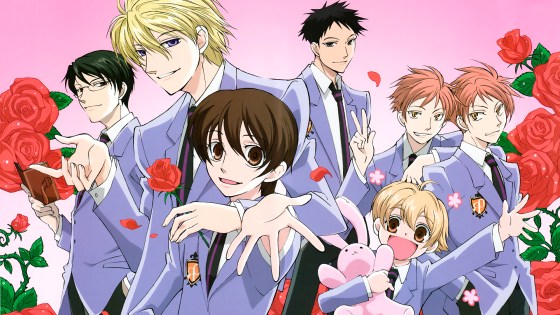
At the elite Ouran Academy, Haruhi Fujioka, the rare scholarship student with a humble background, unintentionally enters the room of the Host Club—where “handsome boys with too much time on their hands entertain and charm girls who also have too much time on their hands.” After accidentally breaking an antique vase worth a fortune, Haruhi starts to run errands for the Host Club to pay off her debt. Soon, she is recruited as a host because of her androgynous looks to entertains girls under the guise of being a boy. Ouran High School Host Club completely embraces its over-the-top nature, with the ludicrous behaviors of the hosts—and the guests—providing a sharp, humorous contrast to Haruhi’s level-headed, matter-of-fact personality. But the show isn’t only notable for its comedic value. Released more than a decade ago, the show was ahead of its time in introducing a female lead who does not adhere to gender norms.
The Promised Neverland (2019-present)
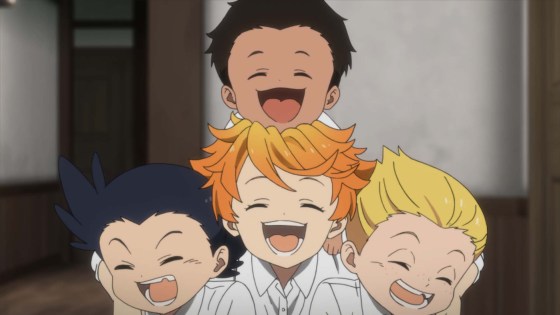
The Promised Neverland is about kids, but it’s certainly not a show for kids. The Grace Field House is home to a few dozen orphans who live under the care of “Mama” Isabella. All is well on the surface, with the children bonding with their friends and having regular playtime in the fields until the day they are adopted. When the oldest children—11-year-olds Emma, Norman and Ray—discover the shocking reality of what happens in the “adoptions,” they devise a plan to escape from “Mama” and the house. Dark and thrilling, The Promised Neverland keeps you on the edge of the seat. It’s also rife with heartwarming moments of friendship, especially between the three leads. The series’ major flaw is its portrayal of Sister Krone, the Black woman who is Mama’s assistant, that appears to be rooted in racial stereotypes. This aspect of the show has prompted conversations about the depiction of Black characters in anime.
Puella Magi Madoka Magica (2011)
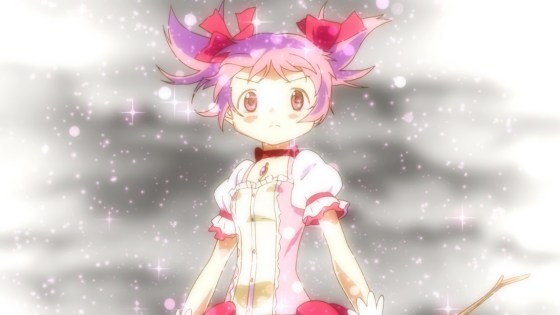
Though Puella Magi Madoka Magica starts off like a cheery magical girls show, it’s anything but. A mysterious cat-like creature named Kyubey makes an enticing offer to middle schooler Madoka Kaname: become a “magical girl” to fight witches, and Kyubey will grant any wish in exchange. Madoka accepts, but quickly starts to discover the haunting truths behind the contract she signed. A dark take on the traditionally upbeat and hopeful magical girls genre, Puella Magi Madoka Magica becomes more deliciously disturbing through the jarring transitions to psychedelic imagery combined with eerie music. This series with a rosy premise captivatingly spirals into a psychological thriller that is chilling to the core.
Violet Evergarden (2018)
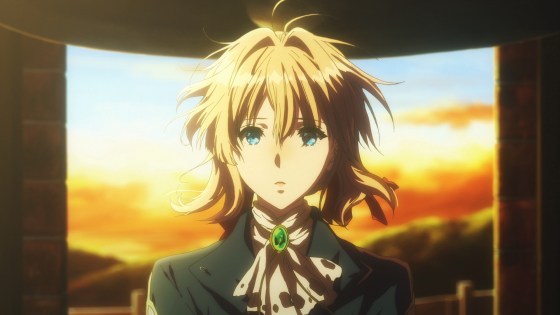
In her new job as an Auto Memory Doll—a letter-writing role that translates customers’ emotions into words on paper—Violet Evergarden initially struggles. She was a child soldier trained to be nothing more than a weapon in war, and is more familiar with military orders than any expression of feelings. But now the war is over and her last interaction with Major Gilbert, her mentor on the battlefield and the person most important to her, drives her to continue this job. Through writing letters for others, Violet wants to find out the meaning of his words: “I love you.” Heartrending from its opening moments—where Violet acts more like a robotic doll than a living girl—Violet Evergarden is a powerful exploration of the emotions central to the human psyche.
Your Lie in April (2014-2015)

Kousei Arima is a piano prodigy—he dominated competitions and performed with an orchestra at the age of eight. His mother trained him to become a world-class musician, often subjecting Kousei to physical and verbal abuse. After her death, Kousei quit the instrument because he can no longer hear the sound of his own playing. That is, until he meets Kaori Miyazono, a passionate violinist who successfully encourages Kousei to play the piano again. Your Lie in April is a masterpiece both aesthetically and musically—the frames are vibrant with colors and the classical pieces we hear are majestic and grand. Narratively, the series crafts a poignant self-discovery story for Kousei as he faces the psychological trauma from his past and finds a new type of freedom and joy through music.



0 Comments